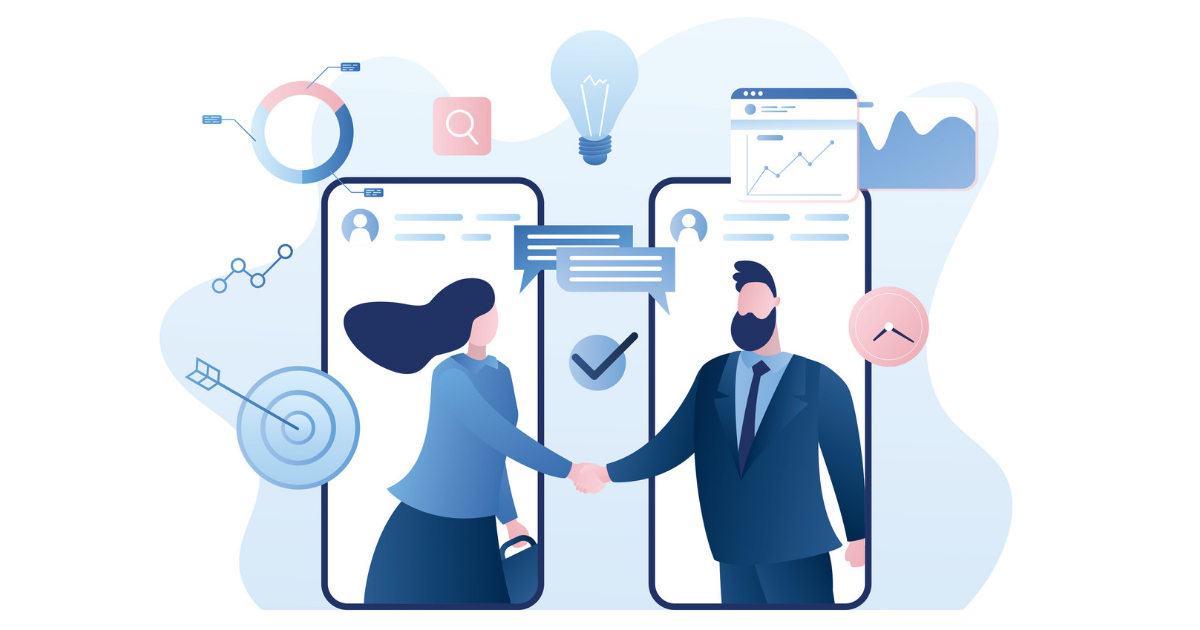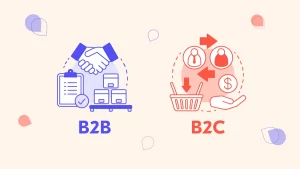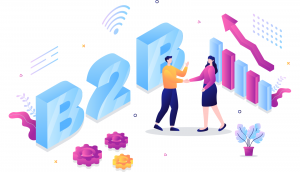How to start a B2B E-commerce business on Shopify

If you run a retail store on Shopify and want to expand the reach of your products and services, setting up B2B e-commerce can be a great strategy to tap new market opportunities. Unlike B2C customers, businesses generally tend to purchase in bulk which results in higher average order values for your store and increases the sales volumes.
However, selling B2B on Shopify involves a different approach compared to traditional B2C sales. It requires you to set up customized pricing and volume discounts, flexible net payment terms, and personalized shopping experiences to cater to the unique shopping patterns of different B2B customers. With the right strategies and tools, Shopify can be a powerful platform to manage your B2B sales seamlessly.
In this article, we’ll discuss everything about setting up and starting your B2B e-commerce business on Shopify. So let’s get started!
Difference between selling B2B and B2C on Shopify

Selling B2C on Shopify is quite different from selling B2B on the same platform. Here are the key differences between B2C and B2B sales on Shopify.
- Custom Pricing and Discounts
In B2C, stores generally provide standard pricing and occasional sales or discount codes to individual buyers. On the other hand, B2B selling on Shopify requires custom pricing structures that are made to cater to different business clients. Wholesale customers usually expect volume-based discounts and special pricing tiers based on their order quantities.
- Personalized Shopping Experience
The B2C shopping experience is typically the same and consistent for all customers, regardless of their profile. Meanwhile, B2B selling on Shopify focuses on providing a personalized experience for business clients. This can involve personalized pricing, special products, and bulk purchasing options tailored to each business’s needs.
- Specialized Product Offerings
B2C stores tend to offer a wide range of products designed for general consumers. In contrast, B2B stores often feature specialized products or bulk packages that cater specifically to the needs of businesses. This can include exclusive items only available to B2B clients.
- Flexible Payment Options
B2C customers usually make single purchases with a straightforward checkout process. However, B2B transactions often require more flexible payment methods like paying after a certain period of time, also known as Net 30 or Net 60. This enables businesses to pay on a date in the future once they have the cash flow. This flexibility helps build strong, long-term business relationships.
- Efficient Bulk Ordering
In B2C, the purchase process is generally simple as customers rarely buy in large quantities. Conversely, B2B customers often need to place large orders quickly. Shopify’s wholesale order forms allow B2B clients to add multiple products and quantities to their cart in one go which streamlines the bulk ordering process.
- Complex Shipping and Logistics
Shipping in B2C is usually straightforward, with standard delivery options. In contrast, B2B sales often involve complex shipping solutions to handle bulk orders, including shipping rates based on weight or quantity and more parameters.
Benefits of selling B2B on your Shopify store

Expanding your Shopify store to sell B2B has tons of advantages. Let us check out the biggest ones.
- Higher Average Order Value and More Sales – One of the most significant advantages of B2B sales is that it generates orders of higher average values. Businesses typically buy in bulk which results in larger orders placed. This increase in order size can substantially boost your revenue and profitability.
- Improved Inventory Management – Selling in bulk helps streamline inventory management. By moving larger quantities of products, you can reduce the costs associated with storage. Efficient inventory turnover helps maintain a healthy cash flow and reduces the potential for obsolete stock.
- Diversified Revenue Streams – Expanding into B2B sales diversifies your revenue streams, reducing dependence on the volatile B2C market. This helps build some stability in your business operations as your business now does not depend on a single channel for sales.
- Access to Larger Market Opportunities – The B2B market is a big opportunity to expand and grow. By targeting businesses, you can tap into new industries and expand your market reach.
- Better Cash Flow – B2B transactions are generally higher in volume and also have some pattern as compared to B2C transactions. This helps you build a stable cashflow for your business.
How to set up a B2B E-commerce business on your Shopify store
There are two ways to set up a B2B E-commerce business on your Shopify store.
The first way is by upgrading your existing plan to a Shopify Plus plan which enables you to set up and offer personalized pricing and discounts, wholesale sign-up form, net payment terms, control access to products and pages, set advanced shipping rates and more. However, this upgrade can cost you around $2000 per month, which is a super significant amount for small and medium businesses.
The other way is to install wholesale apps available on the Shopify app store. The apps like Wholesale Pricing Discount can help you set up customized pricing and discounts, implement a wholesale sign-up form, set up net payment terms, offer advanced shipping options and more.
Wholesale Lock Manager can help you control who sees what in your store so you can create a custom shopping experience for your B2B and wholesale customers. Also, with the WSH Order Form and ReOrder app, you can facilitate bulk ordering on your store for your wholesale or B2B customers. The basic plans of all the apps combined can cost you somewhere around $50 which is significantly lower than what you have to pay for the Shopify Plus plan.
Conclusion
Starting a B2B e-commerce business on Shopify is a great way to diversify your revenue streams and tap into larger market opportunities. By offering custom pricing, personalized shopping experiences, and flexible payment options, you can cater to the needs of business clients. Whether you choose to upgrade to Shopify Plus or utilize cost-effective apps like those from Wholesale Helper, setting up a B2B store on Shopify can be done efficiently and effectively.
By selling B2B e-commerce on Shopify, you can streamline your inventory management, enhance customer loyalty, and achieve higher average order values. This strategy helps you increase your profitability and at the same time also build a stable and predictable revenue stream.
